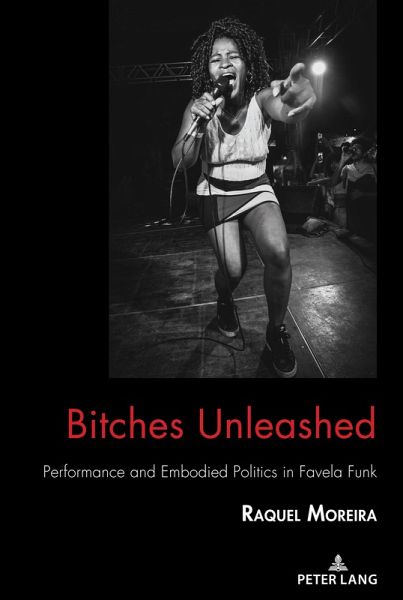
Bitches Unleashed (eBook, ePUB)
Performance and Embodied Politics in Favela Funk
Versandkostenfrei!
Sofort per Download lieferbar
Statt: 105,60 €**
30,95 €
inkl. MwSt.
**Preis der gedruckten Ausgabe (Gebundenes Buch)
Alle Infos zum eBook verschenkenWeitere Ausgaben:

PAYBACK Punkte
15 °P sammeln!
This book challenges white and Western feminist approaches to embodied politics, or the use of the body in everyday enactments of resistance, while mapping transgressive performances of femininities by the funkeiras, marginalized women and transfeminine people of color artists in Brazilian favela funk. Often studied from a white feminist perspective, embodied politics reflects debates about agency and structural change that are generally applicable to white women in the West. Concurrently, studies of femininity tend to universalize experiences of gender oppression encountered by white women to...
This book challenges white and Western feminist approaches to embodied politics, or the use of the body in everyday enactments of resistance, while mapping transgressive performances of femininities by the funkeiras, marginalized women and transfeminine people of color artists in Brazilian favela funk. Often studied from a white feminist perspective, embodied politics reflects debates about agency and structural change that are generally applicable to white women in the West. Concurrently, studies of femininity tend to universalize experiences of gender oppression encountered by white women to women across the globe. In this work, the author offers a transnational perspective on the performative force of embodied politics as a possible means to disrupt white, classist heteropatriarchal structures that oppress particularly poor women and transfeminine people of color in Brazil. This project has a threefold goal: first, it challenges the theoretical shortcomings of white feminist approaches to embodied politics, providing instead a transfeminista take on the concept. Secondly, this project aims to shed light on how traditional methodological approaches have hindered nuanced understandings of women and people of color and their performances. Third and finally, by challenging and re-envisioning the potential of embodied politics from a transnational perspective, the text intends to contribute to the field of critical intercultural communication's growing but still limited research around bodies and performance, especially of those who are marginalized in global contexts.
Dieser Download kann aus rechtlichen Gründen nur mit Rechnungsadresse in A, D ausgeliefert werden.













